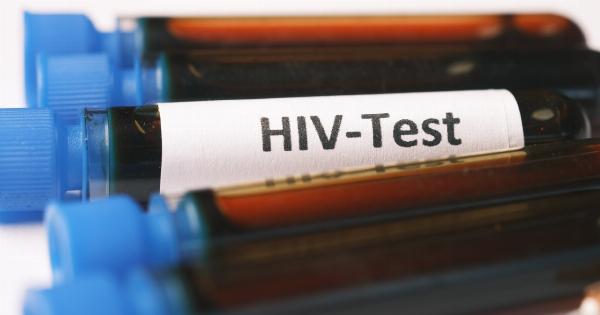The Human Immunodeficiency Virus (HIV) has been a persistent global health crisis since its discovery in the early 1980s.
Over the years, tremendous progress has been made in understanding the virus, developing effective treatments, and reducing the transmission rates. However, HIV remains a significant public health challenge, particularly in low-income countries where access to healthcare and prevention services is limited.
In the ongoing battle against HIV, a ray of hope shines through the efforts of an organization called HELP.
The Urgency of the HIV Epidemic
HIV/AIDS has claimed the lives of more than 32 million people worldwide since the start of the epidemic, making it one of the most devastating pandemics in history.
According to the World Health Organization (WHO), approximately 38 million people are currently living with HIV, with around 1.7 million new infections occurring each year.
The HIV epidemic disproportionately affects vulnerable populations, including women, young people, and individuals from marginalized communities.
Stigma, discrimination, and limited access to healthcare services exacerbate the challenges faced by those living with HIV.
Treatment as Prevention
One of the significant breakthroughs in HIV management has been the concept of Treatment as Prevention (TasP).
TasP refers to the idea that by providing antiretroviral therapy (ART) to individuals living with HIV, the viral load in their blood can be suppressed to undetectable levels. When viral load is undetectable, the risk of HIV transmission is dramatically reduced.
Multiple studies have supported the effectiveness of TasP in preventing new HIV infections. The landmark PARTNER study, for instance, followed 1,166 serodiscordant couples (where one partner has HIV and the other does not) over several years.
The study found that there were no cases of HIV transmission when the partner living with HIV had a sustained undetectable viral load.
The Role of HELP
Health Education and Lifeskills Project (HELP) is a non-profit organization dedicated to combating HIV/AIDS in underprivileged communities.
HELP focuses on raising awareness, providing educational resources, and delivering comprehensive care and support services to individuals affected by the virus.
Prevention through Education
Education plays a crucial role in the prevention of HIV. HELP conducts informative workshops and awareness campaigns to educate communities about the risks associated with HIV transmission and the importance of safe practices.
By disseminating accurate information, HELP strives to dispel myths and misconceptions that contribute to the stigma surrounding HIV/AIDS.
HELP’s prevention efforts include promoting the use of condoms, encouraging regular HIV testing, and advocating for the empowerment of women and girls.
By addressing the social and economic factors that put individuals at risk, HELP takes a multidimensional approach to HIV prevention.
Comprehensive Care and Support
Beyond prevention, HELP also focuses on providing comprehensive care and support to individuals living with HIV. Their services range from medical care and counseling to vocational training and income-generating activities.
Through partnerships with local healthcare providers and community-based organizations, HELP ensures that individuals living with HIV have access to affordable and quality healthcare services.
Regular check-ups, adherence to ART, and early detection of opportunistic infections are emphasized to improve the health outcomes of those affected by the virus.
Furthermore, HELP offers psychosocial support to address the emotional and mental health needs of individuals living with HIV.
Counseling sessions, support groups, and outreach activities help create a safe and supportive environment, reducing the isolation and stigma experienced by many.
Fighting Stigma and Discrimination
The battle against HIV cannot be won without combating the deep-rooted stigma and discrimination associated with the virus. HELP plays a vital role in advocating for the rights of individuals living with HIV and challenging societal prejudices.
Through awareness campaigns, HELP aims to reduce the fear and ignorance surrounding HIV/AIDS.
By sharing personal stories and promoting positive portrayals of individuals living with HIV, HELP humanizes the epidemic and encourages empathy and understanding.
Additionally, HELP engages in advocacy work to ensure that individuals affected by HIV have equal access to education, employment, and healthcare services.
By collaborating with governments, policymakers, and civil society organizations, HELP helps shape policies and programs that prioritize the needs of those living with HIV.
Research and Innovation
While the battle against HIV has witnessed remarkable progress, the need for ongoing research and innovation remains crucial.
HELP actively supports and collaborates with scientists, researchers, and healthcare professionals to develop new treatment strategies and prevention tools.
Ongoing research efforts aim to improve the effectiveness of antiretroviral drugs, develop HIV vaccines, and explore novel approaches to HIV prevention, such as pre-exposure prophylaxis (PrEP) and post-exposure prophylaxis (PEP).
Conclusion: A Promising Future
The battle against HIV is far from over, but organizations like HELP give hope and emphasize the importance of collective efforts in fighting the epidemic.
By focusing on prevention through education, comprehensive care and support services, fighting stigma and discrimination, and supporting research and innovation, HELP contributes significantly to the global response against HIV.
Ultimately, the goal is to create a world free from HIV/AIDS, where every individual can access the care and support they need.
The battle continues, but with organizations like HELP leading the way, there is optimism for a future where HIV is no longer a global health crisis.





























